The future of a family business lies in choosing the right time for transition. The F1 generation must have a training strategy and accompany the F2 generation as soon as possible.
 |
| Finding a successor to a family business is always a challenge. In the photo: Ms. Vuu Le Quyen, a successful successor at Biti's, during an employee training session |
The "key keepers" inherit
Nguyen Doan San, Deputy General Director of San Ha Company - a business specializing in producing and supplying safe food according to VietGAP standards, has become the F2 successor of the family business. Like many other F2s of business families, he does not want to mention his personal role; instead, the business performance of the company is what he aims for and wants to affirm his own value.
He is known to his friends and partners as a successful F2 successor in a family business. This is because, since his school days, he had determined that when he grew up, he would take on and help his parents with their work. In 2016, after graduating from finance in Australia, he returned home and became an official member of the company. For him, choosing to work in a family business was natural. To start, he had to start from the most basic jobs, from the role of an employee to many other positions to learn each stage of the company's operations.
In Vietnam, according to a survey by the Vietnam Federation of Commerce and Industry (VCCI), by 2023, the number of family businesses will account for 70% of the 900,000 businesses nationwide. 58% of business owners are over 50 years old and 35% of them want to retire early and find a successor. However, more than 40% of businesses cannot transfer generations because they cannot find a suitable successor; 60% due to lack of interaction between key family members.
The family always shares with each other, so that is a favorable condition for this F2 to approach and understand the work quickly. At the company, he is the one in charge of technical investment in developing the product supply chain, while his brother is also the Deputy General Director responsible for developing and expanding the business. Both always discuss work and support each other. The parents of these two Deputy General Directors are still working hard, this adds "fire" for the two brothers to succeed and together make the company grow stronger and stronger.
Similarly, Nguyen Van Manh, General Director of TNG Investment and Trading Joint Stock Company, is the eldest son of Chairman Nguyen Van Thoi, currently holding the position of General Director in charge of managing the textile sector of the entire system. Meanwhile, Manh's younger brother, Nguyen Manh Linh, was assigned to develop the real estate sector with TNG Land Joint Stock Company (with capital contributed by TNG Investment and Trading Joint Stock Company).
Recently, TNG Land started construction of the social housing project Dai Thang Residential Area (Peace Village Urban Area) in Pho Yen ( Thai Nguyen ). TNG Land also aims for long-term development, popularization and IPO, listing shares on the secondary market.
As an 8x generation entrepreneur, Vu Le Quyen - the eldest daughter of Biti's owner Vu Khai Thanh, after studying in Canada, she returned to Vietnam in 2004, taking on the position of Deputy General Director of Technology and Business of Biti's.
Vu Le Quyen officially took over the management role of Biti's from her parents in 2018 and began the journey to lead the new consumption trend "Proudly made in Vietnam" with the mission of reaching out to Asia.
The highlight of Biti's leadership transition period is related to the marketing story that the daughter of the Vu family accumulated after a period of studying experience abroad. Her business plan is not outside the goal of bringing the Biti's brand closer to customers. After taking over the company from her father, Vu Le Quyen has made spectacular changes in all aspects of Biti's.
First, she carried out a comprehensive renovation of Biti's through the Hunter sports shoe brand aimed at the young, dynamic generation. Vu Le Quyen's mark in the journey of changing the appearance of Biti's after nearly 10 years of being forgotten is shown through the cooperation with Son Tung M-TP. This is the first time the Biti's brand has appeared in a music video, showing the boldness of a young entrepreneur with a burning will to increase the dynamism and fashion of a product compared to his father's generation.
Following that, Biti's launched the project "Step towards the sun", targeting female customers through cooperation with Miss H'Hen Niê as a brand ambassador.
Vu Le Quyen's boldness in taking over the company created a private brand connecting with young people, focusing on popular shoes - a segment that is growing strongly and rapidly in the domestic market following the trend of sports and convenience...
Particularly for children's shoe products, Biti's boldly cooperates with international businesses such as Disney or DC Comic, purchasing copyrights for character images to incorporate into its products.
In sales channels, instead of going through agents as before, Vu Le Quyen has built a chain of stores specializing in selling Biti's products across the country, bringing Biti's products into the supermarket system. Biti's also diversified the forms of purchasing products through online platforms such as Shopee, Lazada, Tiki...
Recently, the F2 generation at Song Hong Garment Joint Stock Company, Mr. Bui Viet Quang, General Director, representing Chairman Bui Duc Thinh (Mr. Quang's father), has appeared more frequently. Or Mr. Dao Huu Duy Anh, General Director of Duc Giang Chemical Joint Stock Company (son of Mr. Dao Huu Huyen, Chairman of the company) has also impressed shareholders and investors with his qualifications.
In the banking and real estate industry, the next generation has names such as Do Quang Vinh, Vice Chairman of the Board of Directors and Deputy General Director of SHB Bank (son of Mr. Do Quang Hien, Chairman of SHB); Tran Hung Huy, Chairman of the Board of Directors of ACB Bank (son of Mr. Tran Mong Hung, founder of ACB); Dang Hong Anh, son of Mr. Dang Van Thanh (Chairman of Thanh Thanh Cong Group)...
"Knots" in generational transfer
Up to now, training the successor team in Vietnamese family businesses has become urgent. In many businesses, the generation of leaders has retired, leaving the "hot seat" to the younger generation. New names, faces that gradually make their mark and assert themselves in the community, are expected to create momentum and continuity for the business.
Most of the F2s are discreet people, focus on work efficiency, have good human resource management and foreign relations skills, and are especially sensitive to new business trends.
However, there are not many successful cases of family business inheritance.
According to business management experts, not only in Vietnam, but also in family businesses around the world, they face generational transfer problems. In Vietnam, finding a successor is much more challenging because generational transfer is not a concern for many F1 businessmen.
Mr. Pham Dinh Doan, Chairman of Phu Thai Holdings Group, Chairman of the Vietnam Family Business Council, shared that family businesses in Vietnam are facing difficulties because the F1 generation has outdated knowledge and is old, but cannot transfer it to the next generation.
Mr. Doan pointed out the fact that there are family businesses that are still run by very old businessmen. Although most family businesses in Vietnam invest in sending their children to study abroad, creating all conditions for their children to have the best education. However, there is a conflict between the F1 and F2 generations in management. The F1 generation often makes decisions based more on individuals, while the F2 generation manages professionally and integrates better.
“There are people running businesses who are 65 years old and have no plan for succession. Many F1 generations that I have met still manage based on experience, family, relationships, etc., so the F2 generation is not respected. Meanwhile, the F2 generation does not think that the experience of the F1 generation is significant,” Mr. Doan stated the reality.
Similarly, Mr. Tran Dinh Cuong, Chairman of EY Vietnam, said that family businesses are currently under a lot of pressure regarding digital transformation and green transformation, but each generation has different perspectives, different ways of handling and different solutions.
But there is another reason, accounting for up to 25% of unsuccessful transfers, which is because the F1 generation is not ready to leave the chair.
According to Mr. Cuong, when entrepreneurs succeed, they become monuments in the eyes of everyone. They think that they are still energetic and can continue working. When they are exhausted, with more work and greater pressure, they think about transferring, but at this time the F2 generation is not ready, they are under pressure because the problem is too big to handle. That is the reason why in Vietnam, there are many family businesses that have been transferred but have to transfer again.
“If the business is in an uptrend, it’s fine, but if the transfer is in a downtrend, the pressure is much more intense. At that time, the successor only sees the pressure and no longer sees the potential,” said Mr. Cuong.
Generational transfer is very difficult, Mr. Pham Dinh Doan worries, if no successor is found, family businesses will have to consider selling the company. Therefore, family businesses should have two plans to find a successor. In case family members do not accept, there must be a plan to find someone outside to continue the development scale.
The Chairman of EY Vietnam also recommends that family businesses should choose the right time for transfer, training, and accompanying the F2 generation as soon as possible. There must be careful and solid preparation of human resources and finances, with the motto of ensuring sustainable business development.
“The F1 generation, which is at the peak of its power, must accept to step back, take a step back and observe. This is extremely difficult. Therefore, the challenge is from the F1 businessmen, how to give the F2 generation confidence,” Mr. Cuong shared.
According to Mr. Cuong, F2 entrepreneurs can take over the business in many different ways and with different tools to achieve their goals faster and more appropriately. They can choose to be investors and supervise the investment through an outsourced management team. Or they have another option: IPO, go public, retain a portion of the shares, and let the business choose its own new operator, as long as it continues to develop according to its direction.












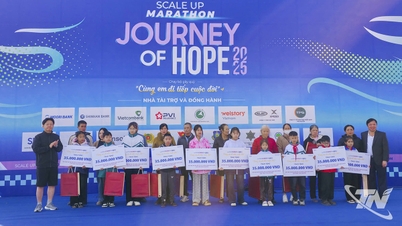

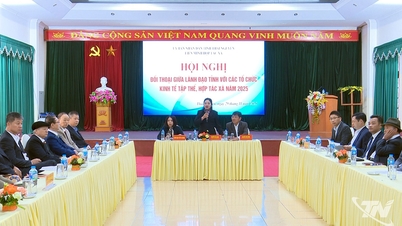
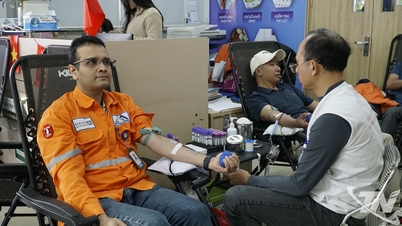


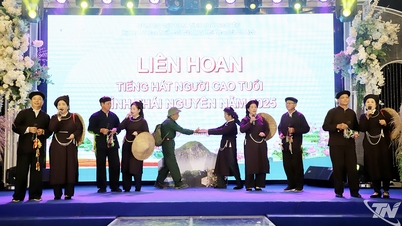






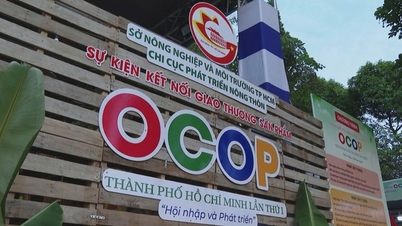

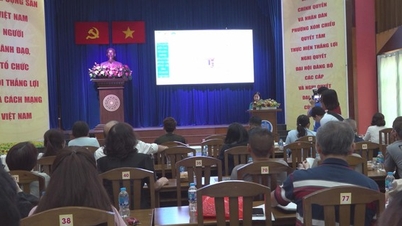
























































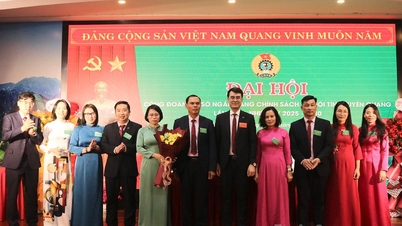

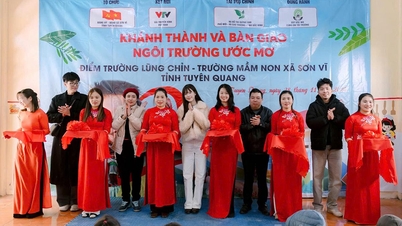
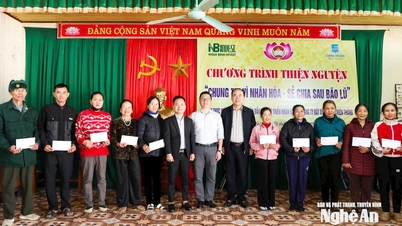


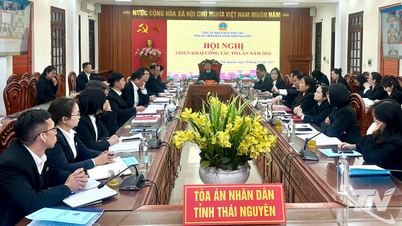













Comment (0)